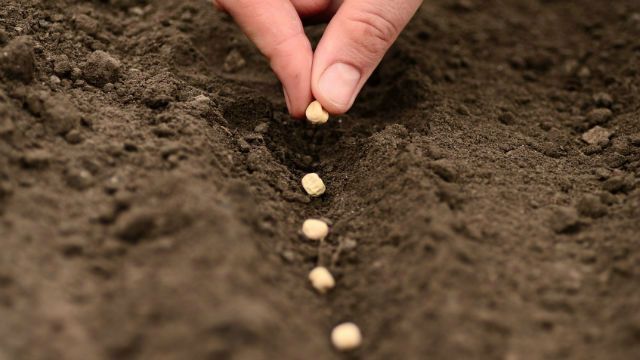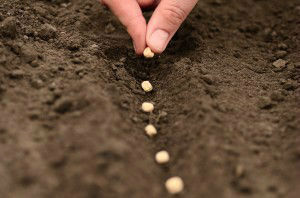
We all know that eating locally grown organic produce is the best way to go. Yet one of the major complaints about eating organic is the expense. Also, trying to eat locally grown produce isn’t always easy, as many farmers may not grow organically and there is often a lack of variety.
However, that doesn’t mean you should give up your quest to maintain an organic diet. Growing your own organic produce is not nearly as difficult or time-consuming as you may think.
Hanging baskets, vertical-growing systems, window sills, balconies and patios are perfect options for those without the convenience of a backyard. Even the fire escape of an apartment building can be reinvented into a lush organic garden for those daring to get a little creative.
The benefits of growing your own produce are numerous. Nothing can be grown more locally than right from your own home. And, you have complete control over how the seeds are planted, which soils to use and when to harvest your produce. Even organically grown produce risks contamination during transport despite the best of intentions, while with your own garden, you are in the driver’s seat.
For some, perhaps it isn’t finding the space to plant that is the problem, but finding the right seeds to plant. With the GMO-king Monsanto owning a majority of seed companies, it can be difficult to seek out truly organic non-GMO seeds, much less know what to plant. Here are a few resources for finding and learning about seeds and organic gardening:
Local organic farmers. One of the main benefits of seeking out the help of local farmers is that you can inquire about their farming practices, and in some cases ask to visit the farm. Additionally, you will be buying your seed locally, which helps support small farming operations, and you’ll have the benefit of seeking out advice face-to-face.
Seed exchanges. At these meetings, local growers get together to swap their seeds. Perhaps you’re looking for something more unique, or a tried-and-true crop that a neighboring farm has had success with. Be sure to inquire about the origin of the seeds, however, as not all growers use organic or non-GMO seeds.
Health food stores. While you may not be assured local seeds, you may have an easier time finding certified organic and non-GMO seeds at the local health food store. And if they get several shipments in, you may be able to find a better variety.
 Online. The Internet is a wealth of information when it comes to seeds. Simply search for “organic seeds,” and you’ll instantly be bombarded with sites promising the cleanest products available. The benefit of shopping online is that you can often read reviews from other consumers as to the quality of the product, and with so many options the variety is limitless.
Online. The Internet is a wealth of information when it comes to seeds. Simply search for “organic seeds,” and you’ll instantly be bombarded with sites promising the cleanest products available. The benefit of shopping online is that you can often read reviews from other consumers as to the quality of the product, and with so many options the variety is limitless.
Catalogues. For those who find page after online page overwhelming, a catalogue may be your best option. These often explain detailed information about the seeds’ characteristics, and help decode terms like “heirloom” and “hybrid.” Be sure to request an organic seed catalogue.
-Then Alternative Daily
Sources:
http://eartheasy.com/blog/2011/01/vegetable-garden-seed-ordering-tips
http://articles.mercola.com/sites/articles/archive/2013/05/23/edible-garden.aspx
http://www.urbanorganicgardener.com/2012/01/7-location-ideas-for-apartment-and-urban-gardens
http://www.urbanorganicgardener.com/2012/02/3-sources-to-buy-your-vegetable-seeds
http://www.organicgardening.com/learn-and-grow/how-read-seed-catalog?page=0,1

